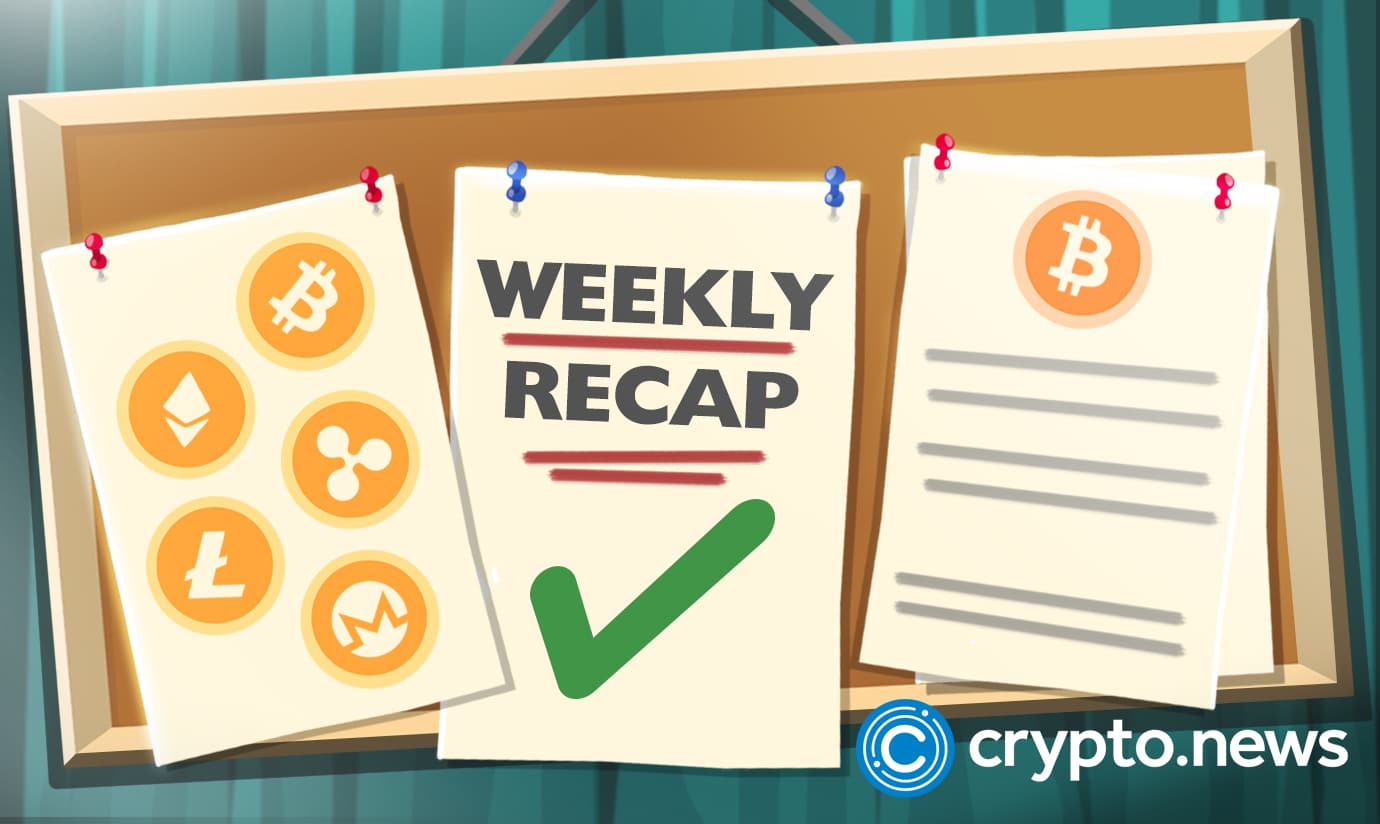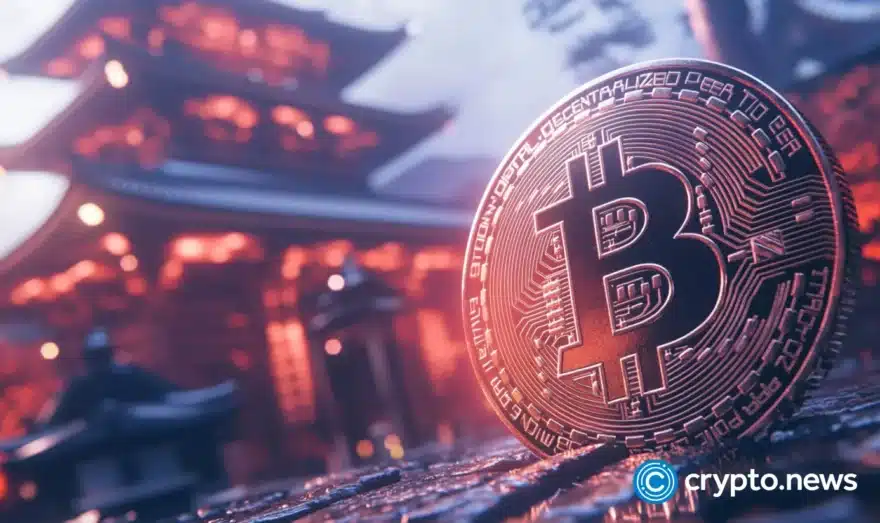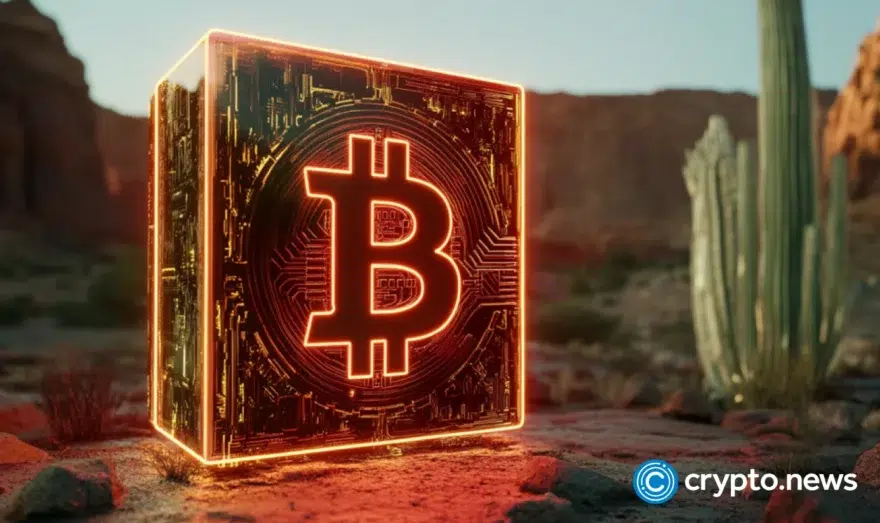Crypto.news weekly recap: global regulators stepping up their efforts, Genesis Global is bankrupt

Last week saw a notable increase in crypto-focused global regulatory efforts and a corresponding uptick in government interest across the board. The Gemini and DCG case saw some updates, with Genesis Global officially filing for bankruptcy. Meanwhile, FTX remained in the spotlight as bankruptcy lawyers scrounged for pennies to settle aggrieved creditors.
Don’t forget to subscribe to our newsletter and get a ton of amazing content right in your inbox!
Heightened global regulatory efforts
Last week, an expected trend prevalent throughout the crypto industry was an uptick in regulatory efforts from various financial bodies across the globe. It is given the recent crypto implosions and scams, resulting in massive losses for investors.
One notable development came from Iran, where the government introduced policies to provide a regulatory framework for the local crypto industry. However, some analysts have expressed disappointment citing restrictions that could destabilize the crypto space. One such restriction is the ban on futures and margin trading. Iran has also prohibited foreign citizens from using local crypto exchanges. Notably, the government was also granted access to users’ data. Subsequently, they now have the power to terminate any user’s account at their discretion.
In the wake of the FTX collapse, which also hurt Japanese customers, financial regulators in Japan, on Jan. 16, highlighted the need to regulate the local crypto sphere with as much scrutiny as it applies in the traditional banking sector. They note that FTX imploded due to a lack of proper oversight.
Meanwhile, crypto exchanges in France were directed to apply for licensing by Jan. 1, 2024. The government pointed to the FTX debacle as an example of why they should upscale regulatory efforts.
U.S. at the forefront of enforcement actions
As this panned out, French law enforcement agencies collaborated with the U.S. Department of Justice (DoJ) to crack down on alleged illegal activities of Bitzlato, a Hong Kong-registered cryptocurrency exchange.
On Jan. 18, the U.S. DoJ said it would announce a global enforcement action. A few hours later, the agency revealed that it had arrested Anatoly Legkodymov, the founder of Bitzlato. The ramp is accused of money laundering and illegal Russian financing.
Amid the DoJ’s enforcement efforts, other U.S. regulatory bodies turned their attention to the alleged fraud of Mango Markets, with the Commodity Futures Trading Commission (CFTC) and the Securities and Exchange Commission (SEC) leveling numerous charges of fraud to the tune of $116m against Avraham Eisenberg, the exploiter of Mango Markets.
These enforcement actions from the U.S. were prevalent not only last week but also throughout 2022. A report from Cornerstone Research, dated Jan. 18, indicated that enforcement actions taken by American regulators increased by 50% last year.
As regulators ramp up their efforts, the crypto industry gradually sees the need for compliance. Many industry players believe that the current regulatory landscape still needs to improve for safety and stability in the crypto market. Venture capitalist and former FTX spokesman, Kevin O’Leary, emphasized the importance of proper regulation in developing a safer and more mature crypto market.
Moreover, in the wake of the multiple bankruptcies witnessed within the space, Christy Romero, a CFTC commissioner, called to attention the dangers of allowing crypto entities to self-certify and list products without ample oversight. Another CFTC commissioner, Caroline Pham, pointed out the need for global crypto regulations in 2023.
Increased interest from federal governments
The rise in global regulatory efforts also coincides with increasing interest from governments. This trend was especially evident last week when several countries announced updates on their central bank digital currencies (CBDCs) and stablecoin projects.
In Spain, the central bank gave the green light to launch a trial phase for EURM, a stablecoin pegged to the Euro. The pilot, expected to last between six and twelve months, will be conducted by Monei, a fintech firm. Upon completing the trial phase, it will debut on the mainnet.
Meanwhile, a crypto-focused transcontinental partnership was established between Iran and Russia. Over the years, both countries have been g interested in crypto due to the many sanctions imposed by the West. Last Sunday, reports revealed that the two nations will launch a stablecoin backed by gold.
Australia also announced plans to launch its stablecoin, “AUDN”, on the Ethereum and Algorand networks. The stablecoin will be pegged to the Australian dollar (AUD) and set for launch in mid-2023. Per reports, the country’s central bank will be the only entity in charge of token minting.
CBDCs: China’s progress and England’s apathy
While others were planning to launch their native stablecoins, China was already introducing improvements to its already-launched CBDC. On Jan. 17, reports disclosed that the government had added smart contracts support for the digital yuan (eCNY), with the feature already being leveraged by Meituan, a Chinese shopping platform.
Even with this increased global interest, England’s CBDC dream faced some opposition last week. Andrew Bailey, the governor of the Bank of England, expressed doubts about the significance of a digital pound. Despite not completely ruling out its necessity, Bailey noted that the British economy might not need the digital pound.
Governments are welcoming crypto
Last week, Mykhailo Fedorov, the vice prime minister of Ukraine, claimed that the European country would likely grow to be the biggest thriving ground for digital assets, speaking at the World Economic Forum (WEF) this year.
Fedorov mentioned that the country is working towards establishing a regulatory framework to legalize cryptocurrencies in Ukraine. Last February, the parliament passed the digital asset bill. He also noted that Ukraine has been receiving financial aid in cryptocurrencies as the Russian war lingers while expressing his gratitude to the crypto community.
In Davos, the UAE minister of foreign trade, Thani Al-Zeyoudi, revealed that they want to make cryptocurrencies a critical aspect of its economic development and trade. He noted that the country would periodically enact legislation guiding the use of crypto as a way to ensure that the local crypto industry is adequately regulated.
FTX creditors greeted with unfavorable reports
The FTX saga occasionally secured the spotlight last week, as updates on the bankruptcy proceedings emerged amid efforts to settle creditors. FTT, FTX’s native token, started the week on propitious grounds, soaring by 60% in the 24 hours leading to Jan. 16. It reached a high of $2.50 before retracing. However, some ascribed the rally to a pump-and-dump scheme.
As its native token soared, FTX was still battling bankruptcy proceedings. Efforts at scrabbling for funds led to the investigation of a $415m crypto theft last year. Among the stolen funds was $90m from FTX US, according to the current FTX CEO, John Ray. Despite this, Sam Bankman-Fried maintained that FTX US is solvent, urging Ray to admit to this claim.
Additionally, reports from Jan. 17 suggested that FTX is still far from realizing enough funds for creditor settlement despite uncovering $5.5b of liquid assets. The company found $3.5b worth of bitcoin (BTC), $1.7b in cash, and $0.3b in securities, but a large shortfall of funds remains. Consequently, investors and customers might still not receive all their lost assets.
Nonetheless, Ray has continued to champion recovery efforts. He filed a motion on Jan. 17, seeking to retain Sullivan & Cromwell lawyers in the ongoing bankruptcy case, citing their relevance. The motion countered a previous proposal to remove the lawyers from the case due to a conflict of interest.
FTX.com to restart?
Ray also disclosed plans to restart FTX.com, the collapsed international platform of the FTX ecosystem. In an interview with The Wall Street Journal last Thursday, Ray mentioned that customers believe the technology behind the FTX.com platform is commendable despite the poor management. Ray and his team are looking into restarting the exchange to scoop funds for investors.
Following the disclosure, the FTT token rallied again, this time by 34%, within two hours. Sam Bankman-Fried also responded to Ray’s comments. He expressed joy in the decision but claimed that Ray is only “paying lip service” to the initiative, alleging that the FTX CEO had been working against plans to carry out the decision for months.
As Ray attempted to recoup funds, Alameda Research liquidators lost funds to liquidated positions. Arkham Intelligence revealed last Wednesday that liquidators in charge of the Alameda wallets and accounts had incurred massive losses, among which over $4m could have been prevented.
Genesis goes bankrupt
FTX reports did not cloud updates on the situation between Digital Currency Group (DCG) and Gemini last week, as Genesis Global joined the long list of bankrupt cryptocurrency firms. Reports from Jan. 18 revealed that creditors and the firm were working on a prepackaged bankruptcy plan.
Two days later, Genesis Global filed for chapter 11 bankruptcy protection, disclosing that it has between 1 and 49 creditors, with assets ranging from $100m to $500m, and liabilities also within the range of $100m and $500m. The bankruptcy filing also covered its subsidiaries. Following the filing, court documents revealed that the lender owed $5.1b to its creditors.
In response, Gemini’s co-founder Cameron Winklevoss expressed his delight, claiming that it presents Gemini and other creditors with a good chance of recouping lost funds. In his assessment, the bankruptcy proceedings will subject Genesis Global to judicial oversight that will help uncover what led to the current situation.
Before the bankruptcy, reports suggested sustained efforts from Barry Silbert’s DCG to raise funds for creditor settlement and navigate the liquidity storm. The firm informed its shareholders last Wednesday that it would temporarily halt dividend payments to preserve liquidity.
CoinDesk, DCG’s media unit, is already in talks with Bermuda-based asset management company, Lazard, regarding a possible acquisition deal. Cardano’s founder Charles Hoskinson is also interested. Last week, he disclosed plans to acquire CoinDesk to “restore journalistic ethics.”
A terrible start to the year for Nexo
It was mostly quiet at the Nexo camp in the past week following the legal and regulatory troubles it faced two weeks ago. After the calm, on Jan. 19, the U.S. SEC charged Nexo for offering its Earn Interest Product (EIP) to American investors without prior registration. The SEC disclosed that Nexo agreed to pay a fine of $22.5m to settle the charges and to stop offering the product to US-based investors.
This development came a week after Bulgarian authorities raided Nexo offices to investigate allegations of illegal financial activities. Nexo addressed rumors saying developments in Bulgaria were politically motivated. However, Bulgarian officials came up this week to counter these claims saying the probe had nothing to do with politics.














